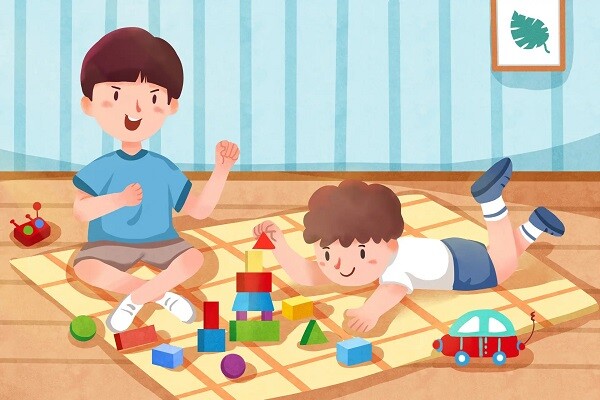Sometimes, this intelligence is only skin deep, and without proper guidance and correction, these children can miss out on crucial developmental opportunities. They may become flustered or unsure of how to cope when faced with challenges, which can then impact their personal growth.
There are three main signs that parents should look out for to identify these “fake smart” children.


A propensity for lying
Many children lie, but what sets these kids apart is how natural and believable their stories are. They don’t stumble over their words, making it hard to catch them in a lie. For instance, a child might not finish their homework but instead of admitting it, they’ll make up an excuse, claiming it got lost or some other mishap occurred. Or they may lie about trivial things, like pretending they participated in school activities when they didn’t.
While they may feel clever for pulling one over on adults or peers, this behavior can have serious consequences. When children realize that lying is a way to shirk responsibility, it can become a habit, impacting their moral development and eroding trust in their relationships.
Parents should emphasize the value of honesty. Teach them that being truthful, reliable, and forthright are essential qualities in family and peer relationships. Emphasize that it’s important not to harm others for personal gain.
Connection and trust are core components of any healthy relationship, and fostering these qualities from a young age will help children grow into adults with strong values.

Self-serving behavior
Some children will take advantage of small things and may disregard the well-being of their peers or family for their own benefit. For example, they might borrow a toy from a friend and never return it, or even lie to get a gift that was meant for someone else.
Moreover, they feel proud of their ability to manipulate others, believing themselves to be smarter and more cunning. This sense of self-satisfaction can make them feel like the center of attention.
However, in the long run, this behavior breeds insincerity and fragile relationships that can easily break. Behind their facade of intelligence, these children often fail to realize that honesty and reliability are the core values that sustain meaningful connections. As a result, they may find themselves isolated as people distance themselves.

Some children will take advantage of small things.
When people feel they’ve been deceived, they’ll naturally want to avoid similar situations in the future, leading to fewer opportunities for the child to learn and grow. This creates a vicious cycle.
The lack of genuine and positive relationships will hinder their personal development and their ability to achieve success in life. Without the support and encouragement of friends and family, they may feel lost and unmotivated to strive for their best.
To correct this behavior, parents should help children understand the value of honesty and compassion. Create opportunities for them to practice sharing and cooperation, and teach them the importance of building relationships based on trust and respect.

A desire to show off without substance
While it’s normal for children to want to showcase their talents, when this desire becomes excessive, it can lead to a lack of substance and long-term success. Instead of focusing on developing their true abilities, they may fall into the trap of superficial displays without investing in their inner growth.
Self-presentation should be appropriate and well-balanced. Children may excel in areas like acting, sports, or academics, but if their efforts are solely aimed at impressing others without genuine skill development, they’ll lack the strength and knowledge to overcome future challenges.

Parents should be good role models, setting the right values and standards for their children to emulate.
The process of shaping a child’s character requires vigilant guidance from parents. It’s important to identify and address any behavioral or cognitive issues early on. Additionally, parents should lead by example, setting the right values and standards for their children to emulate.
By instilling the values of hard work and honesty, children will build a strong foundation for a bright future. Encourage them to participate in group activities and to help their peers, creating a positive environment where everyone has the chance to shine and grow together.





































